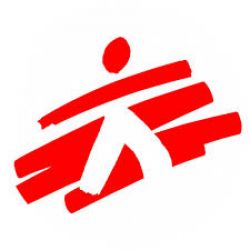Consultant - Learning needs assessment in Infection, prevention and control (IPC)
Infection, prevention and control (IPC) is one of the pillars in MSF approach to antibiotic resistance, which is one of the components the organization is continuously thriving at adapting and improving. Effective IPC measures lead to preventing hospital-acquired infections (HAIs) and hence prevent harm caused by infection to patients and health workers. While each year hundreds of millions of patients are affected by HAIs, this problem usually receives public attention only when there is an outbreak or epidemic, as with the recent SARS-CoV-2, and previously with the Ebola virus disease outbreak in West Africa. Although often hidden from public attention, the endemic, ongoing problem is very real, and no institution or country can afford to ignore it; constant action at all levels of the health system, from policymakers to facility managers, health workers and those who access health services, is needed.
IPC is effectively implemented when healthcare professionals are adequately trained. As part of its efforts to improve the quality of care in the Middle East region, MSF is reflecting on the role that it could need to play in that domain in the region.
BACKGROUND
Infection, prevention and control (IPC) is one of the pillars in MSF approach to antibiotic resistance, which is one of the components the organization is continuously thriving at adapting and improving. Effective IPC measures lead to preventing hospital-acquired infections (HAIs) and hence prevent harm caused by infection to patients and health workers. While each year hundreds of millions of patients are affected by HAIs, this problem usually receives public attention only when there is an outbreak or epidemic, as with the recent SARS-CoV-2, and previously with the Ebola virus disease outbreak in West Africa. Although often hidden from public attention, the endemic, ongoing problem is very real, and no institution or country can afford to ignore it; constant action at all levels of the health system, from policymakers to facility managers, health workers and those who access health services, is needed.
IPC is effectively implemented when healthcare professionals are adequately trained. As part of its efforts to improve the quality of care in the Middle East region, MSF is reflecting on the role that it could need to play in that domain in the region.
OBJECTIVES
Aligned with the MSF vision and objectives, the MEMU is seeking a consultant to conduct this mapping and identification of gaps and needs analysis related to IPC learning resources available to public and private sector healthcare communities in the MENA region, through liaising with relevant entities and bodies such as Ministries, Syndicates, Academics, etc.
The goal of this consultancy to identify gaps in available learning materials and educational courses and resources, and not the gaps in the implementation of IPC practices
The above is to allow MSF explore if building an Arabic/English language IPC course adapted to the regional context reality would be beneficial, demanded and relevant. The course building is another project and not part of this consultancy.
RESPONSIBILITIES
Responsibilities include, but are not limited to:
· Develop and build the methodology of the learning needs analysis with all its steps (tools to use, audience/stakeholders to target, etc.) serving the overall objective of the analysis with clear timelines.
· Be able to present the methodology coherently to internal and external stakeholders and provide regular updates.
· Meeting with respective private and public health actors/academics and other external/internal stakeholders to Identify the gaps in availability and access to learning resources needed for a quality implementation of IPC measures in conflict/protracted crisis/low resources settings in the MENA region (Lebanon, Jordan, Palestine, Iraq, Syria, Yemen, and Egypt in particular)
· Capacity to analyze data and prepare reports outlining LNA findings based on the local knowledge gathered for the respective countries and what role can MSF play in covering a potential gap.
· Provide clear recommendations for MSF in increasing the IPC knowledge, trainings, and learning materials in the region (best format, resources needed, target audience, next steps, partners for certification in the countries of focus or beyond, etc.) /Support build a strategy/project roadmap
The consultant will work closely with the MEMU, he/she will link internally with other MSF teams and externally with relevant partners (Ministries, Syndicates, Academics…) as needed.
Essential requirements:
· Minimum 3 years of work experience in developing and carrying out needs assessment or research for educational purposes and curriculum/training development, or equivalent
- A relevant university degree (medical, para-medical, public health, HR, education...)
· Experience working in a healthcare setting (preferable)
· Languages: English, Arabic is a plus.
Competencies:
· Ability to work independently
· Ability to build a methodology and to be structured
· Works within set deadlines and timeframe
· High communication skills
· Ability to act professionally and flexibility to engage with government/authority representatives, public and private institutions in several contexts
· Demonstrable understanding of and commitment to humanitarian issues and to the aims and values of MSF
How to apply
Interested and qualified candidates are invited to send their application to the email address: [email protected] by the 24 of February 2022
The title of the e-mail should be "Candidate's Name – IPC Learning Needs Assessment".
Only shortlisted candidates will be contacted.
MSF is committed to diversity in terms of gender, nationality, and culture.
Expired